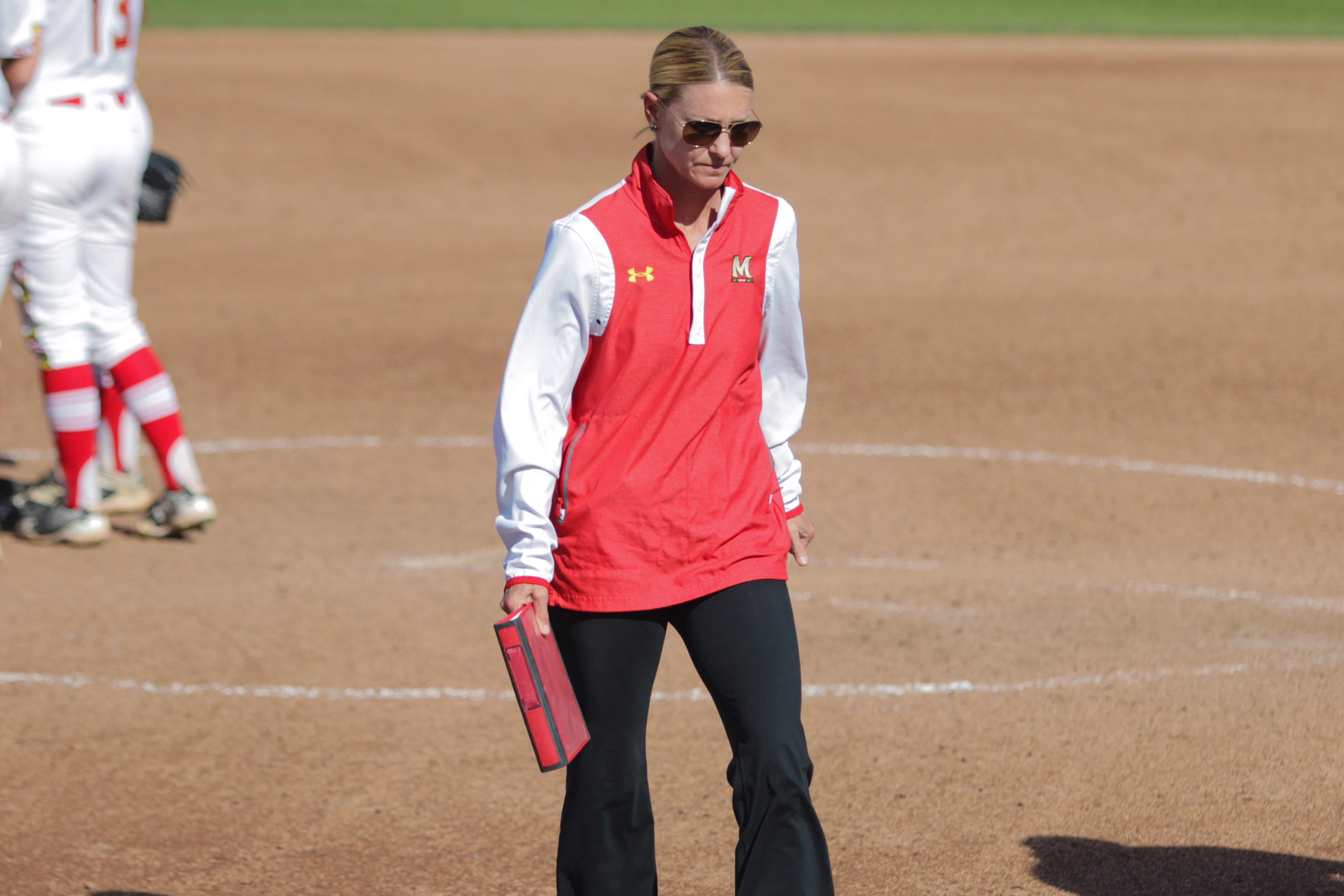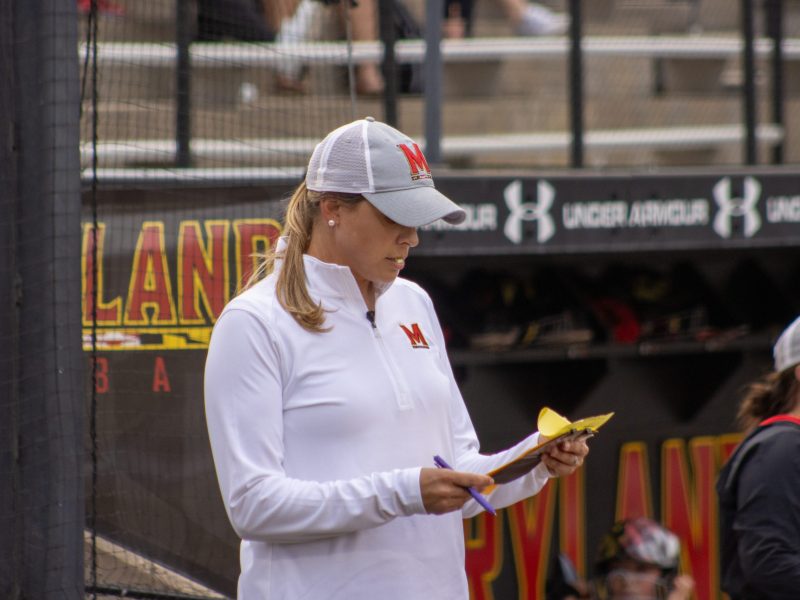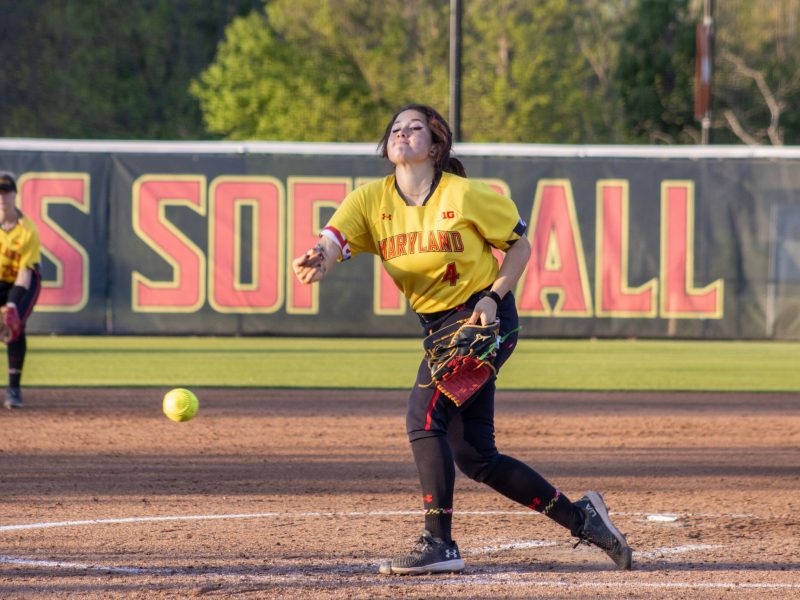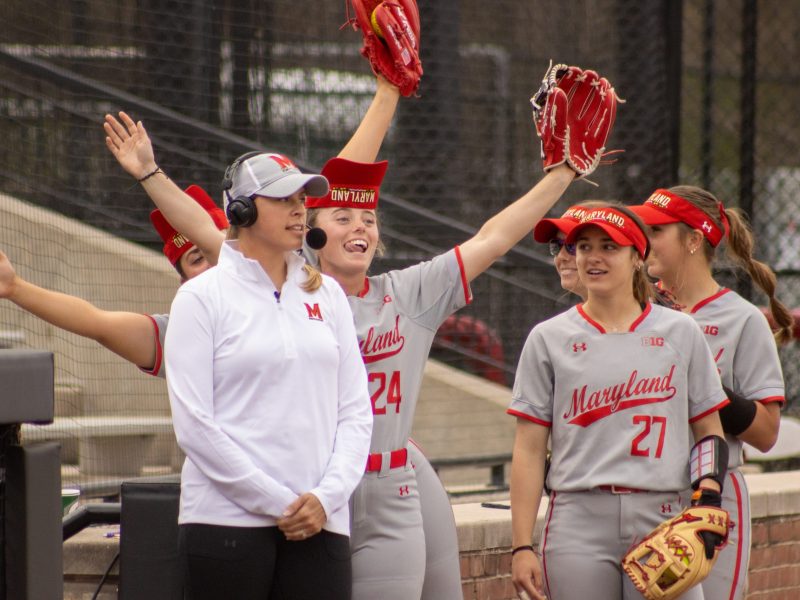The Maryland softball team felt optimistic entering its first season under coach Julie Wright, who guided Idaho State to three straight Big Sky titles during her tenure.
Though the Terps lost pitcher Kaitlyn Schmeiser, who had the team’s lowest ERA, and catcher Shannon Bustillos, now second all-time on the program’s home run list, to graduation, they hoped to succeed with the energetic style of play Wright preached during the offseason. Senior infielder Lindsey Schmeiser backed up Wright’s notion, stating the Terps’ third coach in as many years helped her regain her love of softball.
But with an inexperienced roster — seven players ended up starting 20 or more games for the first time in College Park — Maryland suffered a drop off in the circle and at the plate. The team’s batting average fell from .309 to .276, and its ERA rose from 4.58 to 7.15 as the Terps finished 12-40, their worst mark in program history.
“I like to win and [the team] likes to win,” Wright said of her disappointment with how the season went. “So we’ve got clean some things up.”
Catcher Kristina Dillard, who transferred to this university from Louisville, added that the year “didn’t go as planned,” and it was an experience the team “won’t want to repeat.” The Terps finished with just one win in their final 14 contests and missed out on the conference tournament for the second time in three years.
The Terps failed to display the power stroke that propelled them to a .500 record last season. After four players notched double-digit home runs a year ago, infielder Lindsey Schmeiser led them with just five long balls. Maryland’s offensive struggles worsened down the stretch, as the team scored one run or fewer in nine of its final 14 games.
Instead, a trio of first-year starters carried the offense.
Along with Dillard, who hit .342 and played every inning for Maryland behind the plate, infielder Skylynne Ellazar and outfielder Sarah Calta both hit well over .300 at the plate.
Ellazar’s .399 average ranked third all-time in Terps history. She also blasted four home runs, including a grand slam on Senior Day against Indiana that helped Maryland snap a 13-game losing streak and end the season with a 10-8 win.
Calta, meanwhile, was named to the All-Big Ten Second Team after hitting .408 against Big Ten opponents. She said the confidence her teammates maintained in her despite struggling early in the season helped her rebound before season’s end.
“[The honor] really means … more than people realize,” she said. “I never thought I would have gotten the opportunity to even be a starter let alone be named All-Big Ten.”
But on the mound, the Terps starting rotation, made primarily of juniors Brenna Nation, Hannah Dewey and Madison Martin, endured a difficult campaign.
A 26-4 loss to Nebraska on April 3, the biggest margin of defeat in program history, highlighted their struggles in the circle. Before the game, Wright said the matchup with the Cornhuskers could have been the “defining moment” of the Terps’ season. They had a chance to grab their first series win of the year with a victory.
But Nation, Dewey and Martin each allowed at least six runs each in the blowout defeat, one of 18 run-rule losses this season.
All three pitchers faced unique challenges throughout the season. Martin was often hindered as she recovered from reconstructive foot surgery, while Dewey played a utility role, taking the field when she wasn’t pitching.
Nation battled the emotions that came with the death of her father last October. And though her 7.05 season ERA marked a decline from her sophomore year, she said the experience helped her grow.
“Her season has been inconsistent, just like her life right now,” Wright said. “But she has shown that she’s a warrior.”
Nation ended the season on a high note, though, pitching a complete game on Senior Day to earn her sixth win.
The Terps also said that victory would give them something to build on after a disappointing season. With Wright slated to come back, and everyone but Schmeiser and infielder Corey Schwartz set to return, the Terps believe they can perform at a higher level moving forward.
“In the last three years, they’ve had three head coaches,” Wright said. “So finally they get to stay with one. That’s going to help them a lot.”



